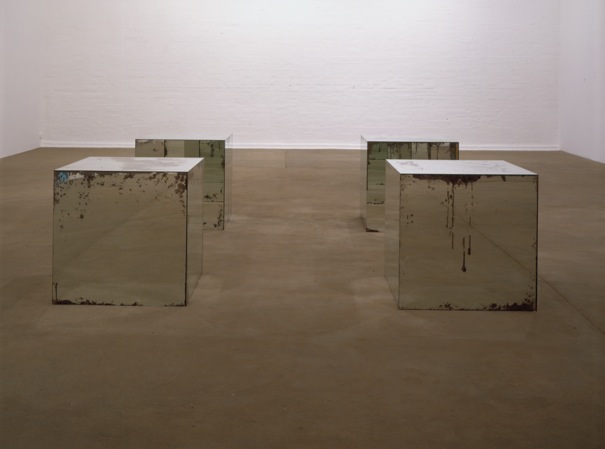Have you noticed mottled black spots
forming around the edges of your mirror? Don’t be too quick to
chalk that deterioration up to aging or cheap material; you yourself
might unknowingly be the perpetrator of this diminishing effect.
For those
who don’t know what gives a mirror its magic, allow American Glass & Mirror to shed some
light on the subject. Mirror is constructed by depositing aluminum or
silver nitrate on normal plate glass creating the material’s
reflective luster. The thin metal layer forms the backing of the
mirror and is generally topped with two protective coats of paint.
Aluminum, and to a lesser-degree
silver, is susceptible to tarnishing when exposed to various
elements, like sulfur, which is a common pollutant in the air. This
means it is critical that the paint layer remains intact in order to
form a buffer between the metal and corrupting elements.
Be careful what kind of cleaner you
use on your mirror! Many household cleaners contain ammonia, an
astringent compound, which precipitates the breakdown of the mirror
backing. Instead, opt for an alcohol-based cleaner. You can even mix
up your own at home by combining denatured alcohol and water (50:50)
in a spray bottle. Simple, cheap, and effective.
Don’t be so quick to point fingers
when you notice your mirror going bad. First, think about your choice
of glass cleaner. Does it contain ammonia? A long look in the mirror
might hold the answer to your tarnished image.
